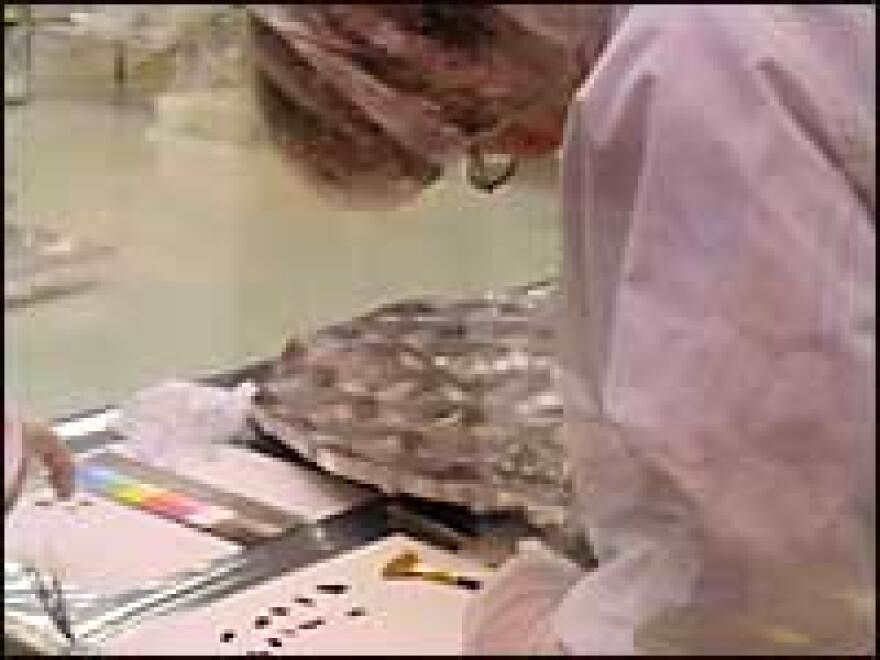NASA scientists are close to completing their recovery work on the Genesis spacecraft, which crashed in the desert in Utah last month when its parachutes failed to deploy. A recovery team has been working in a temporary steel and plexiglass clean room set up at the U.S. Army's Dugway Proving Ground. This week, NASA invited a handful of reporters to witness the clean room work. NPR's Howard Berkes was among them.
Clean room team members shroud themselves in plastic booties, smocks, gloves and caps as they use tweezers to pick out bits of solar wind collector panels from the Genesis wreckage. "Some of the panels are still whole and seem relatively intact. Others broke into pieces. Some of the work involves tiny shards," Berkes says.
The metallic panels contain billions of particles of solar wind gathered during the Genesis spacecraft's 27 months in space. Scientists hope the solar particles will help them understand more about the origins and evolution of our solar system.
One challenge still remaining is decontamination. The Genesis capsule plowed into salty desert soil. Portions of the capsule shattered on impact. "There is a challenge in cleaning off the surface contamination without further damage to either the collector materials or embedding that contamination at depth, and thereby perturbing the sample itself," says Eileen Stansbery, NASA's astromaterials curator at the Johnson Space Center in Houston.
Stansbery's team is preparing the solar samples for shipment to the Johnson Space Center within the next week. There, the decontamination process will begin, as well as analysis of the Genesis solar wind samples. "Until the scientists... start analyzing (the samples), I can't tell you how much science they're going to get (from them)," Stansbery notes. But she has no doubt, she adds, "that there will be good, important, useful scientific data coming out of this."
The Genesis mission costs exceed $260 million.
Copyright 2022 NPR. To see more, visit https://www.npr.org.





